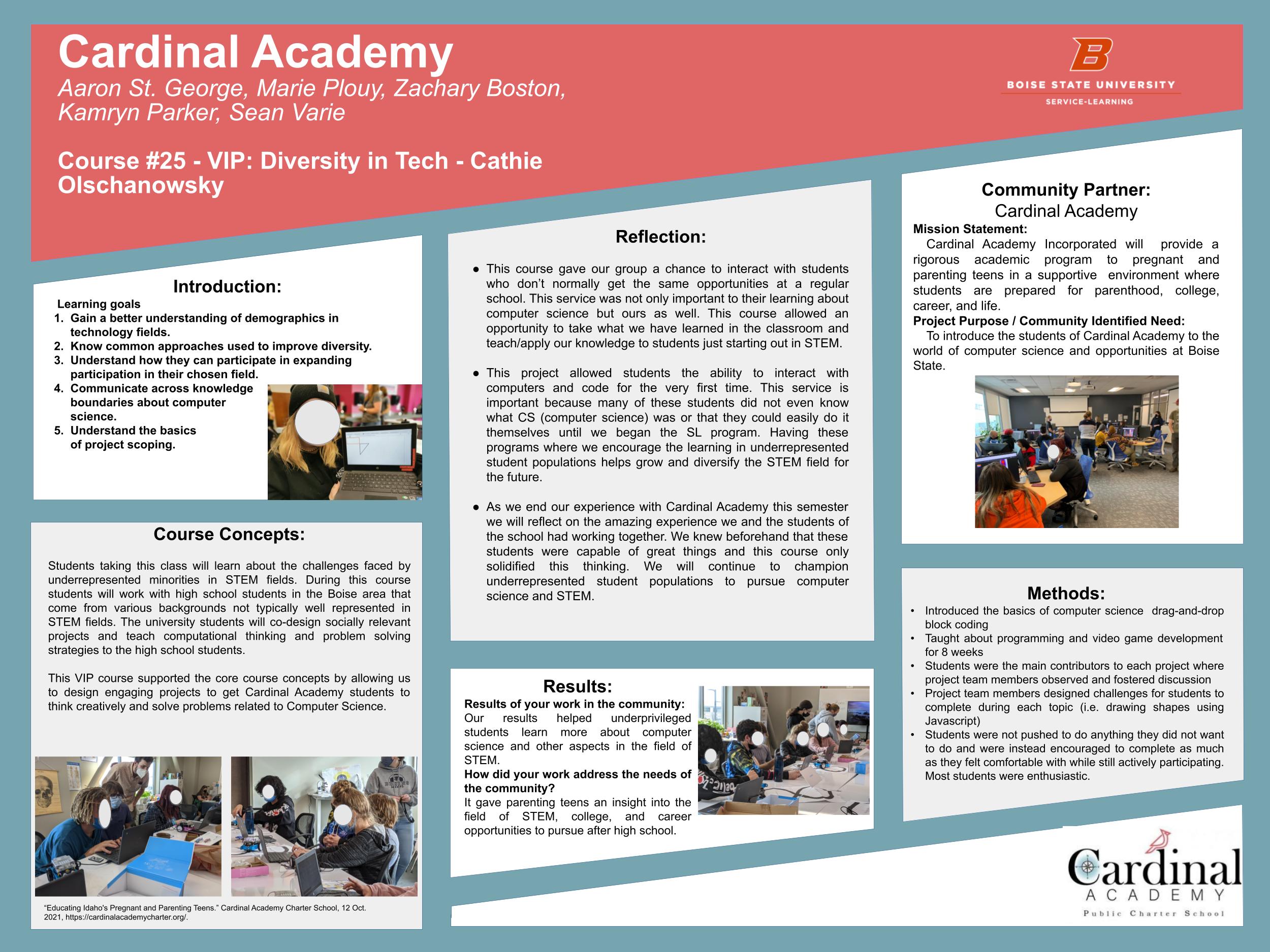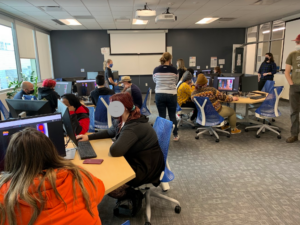Marie Plouy, Sean Varie, Aaron St. George, Zachary Boston, & Kamryn Parker
Dr. Cathie Olschanowsky – VIP 400/500
Cardinal Academy

Introduction
Learning Goals:
- Gain a better understanding of demographics in technology fields.
- Understand how they can participate in expanding participation in their chosen field.
- Communicate across knowledge boundaries about computer science.
- Understand the basics of project scoping.
Reflection
- This course gave our group a chance to interact with students who don’t normally get the same opportunities at a regular school. This service was not only important to their learning about computer science but ours as well. This course allowed an opportunity to take what we have learned in the classroom and teach/apply our knowledge to students just starting out in STEM.
- This project allowed students the ability to interact with computers and code for the very first time. This service is important because many of these students did not even know what CS (computer science) was or that they could easily do it themselves until we began the SL program. Having these programs where we encourage the learning in underrepresented student populations helps grow the STEM field for the future.
- As we end our experience with Cardinal Academy this semester we will reflect on the amazing experience we and the students of the school had working together. We knew beforehand that these students were capable of great things and this course only solidified this thinking. We will continue to champion underrepresented student populations to pursue computer science and STEM.

Community Partner: Cardinal Academy
Mission Statement:
Cardinal Academy Incorporated will provide a rigorous academic program to pregnant and parenting teens in a supportive environment where students are prepared for parenthood, college, career, and life.
Project Purpose:
To introduce the students of Cardinal Academy to the world of computer science and opportunities at Boise State.

Course Concepts
Students taking this class will learn about the challenges faced by underrepresented minorities in STEM fields. During this course students will work with high school students in the Boise area that come from various backgrounds not typically well represented in STEM fields. The university students will co-design socially relevant projects and teach computational thinking and problem solving strategies to the high school students.
This VIP course supported the core course concepts by allowing us to design engaging projects to get Cardinal Academy students to think creatively and solve problems related to Computer Science.

Methods
- Introduced the basics of computer science drag-and-drop block coding
- Taught about programming and video game development for 8 weeks
- Students were the main contributors to each project where project team members observed and fostered discussion
- Project team members designed challenges for students to complete during each topic (i.e. drawing shapes using Javascript)
- Students were not pushed to do anything they did not want to do and were instead encouraged to complete as much as they felt comfortable with while still actively participating. Most students were enthusiastic.

Results
Results of your work in the community: Our results helped underprivileged students learn more about computer science and other aspects in the field of STEM.
How did your work address the needs of the community? It gave parenting teens an insight into the field of STEM, college, and career opportunities to pursue after high school.